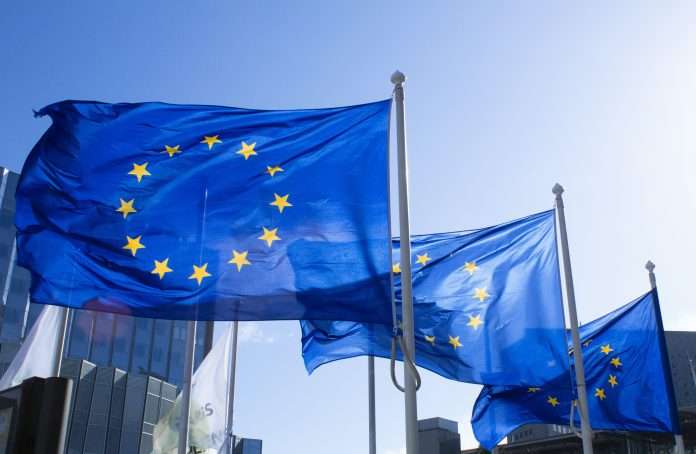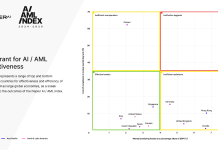Flagright recently took the opportunity to explain how the new AML laws in the EU will impact high net worths and luxury ownership.
The introduction of the new AML laws in Europe signifies a pivotal shift for high net worth individuals (HNWIs). Renowned for their substantial wealth, these individuals now find themselves under intensified scrutiny.
The essence of this change lies not merely in identifying these affluent clients but in gaining an in-depth understanding of their financial pathways – the origins and destinations of their substantial funds. This rigorous scrutiny aims to erect a barrier against the insidious world of illegal activities such as money laundering.
For HNWIs, this regulatory overhaul translates into a more intricate compliance landscape, demanding a higher degree of documentation and thoroughness. While this increased scrutiny might initially seem burdensome, it heralds a new era of transparency, fostering a financial ecosystem that is both clean and trustworthy.
On the flip side, banks are compelled to upgrade their operational readiness. They are tasked with the critical role of dissecting their wealthy clients’ financial backgrounds, a process that necessitates a delicate balance between thoroughness and respect for privacy. Here, technology emerges as a pivotal ally.
Cutting-edge software and compliance solutions are set to revolutionize these background checks, making them not only more efficient but also more precise. This synergy between technology and regulatory compliance is not just about adherence to laws; it’s about sculpting a financial realm where wealth coexists with trust. For both HNWIs and banks, adapting to these new norms is not just crucial; it’s foundational for a future where integrity forms the cornerstone of the financial sector.
Europe’s latest AML laws mark a significant shift in property ownership transparency. Post-January 1, 2014, property owners are mandated to disclose the real, or ‘beneficial’, owners. This legislative move is a robust stance against the clandestine masking of property ownership through intricate layers of companies or intermediaries. The ultimate objective? To dismantle the shelters that harbor illegal undertakings like money laundering.
This regulatory evolution mandates businesses and property owners to maintain a precise and accessible record of ownership details, ready for inspection by authorities. Moreover, this transparency is not just a mandate but a stride towards integrity in business and property transactions. The disclosure norms also empower journalists and civil society entities, introducing an additional layer of scrutiny and accountability.
In essence, these reforms are not just about transparency; they are about fostering a marketplace where clarity is paramount, significantly fortifying the barriers against crime.
A critical component of Europe’s revamped AML statutes revolves around the imposition of thresholds on cash transactions, a move strategically aimed at combating financial crimes. For SMEs, this introduces a paradigm shift in transaction monitoring and reporting. Transactions exceeding €10,000 are now spotlighted, necessitating meticulous reporting – a mandate that encapsulates not just the corporate giants but SMEs as well.
Even for transactions that don’t hit the €10,000 mark but hover between €3,000 and €10,000, vigilance is paramount. SMEs are now the custodians of due diligence, tasked with the responsibility of decoding the origins and legitimacy of these transactions. While this might seem daunting, it essentially boils down to a culture of meticulous record-keeping and an acute understanding of the regulatory landscape.
These laws are not mere regulatory hoops to jump through; they are protective bulwarks shielding the economy and businesses from the threats posed by illicit financial streams. By aligning with these regulations, SMEs don’t just evade legal repercussions; they contribute significantly to a broader, more consequential crusade against financial crime.
The advent of custom rule-building in compliance processes marks a transformative phase, especially for SMEs. The new AML regulations underscore that generic solutions are obsolete. Businesses are incredibly diverse, with each entity characterized by its unique transaction patterns, customer profiles, and risk landscapes. Custom rules empower businesses to channel their focus on pertinent aspects, ensuring a compliance process that is both effective and efficient.
Flagright’s innovative technology exemplifies this trend, enabling businesses to set bespoke parameters for transaction monitoring. This could range from flagging transactions of certain magnitudes to those originating from specific geographical locales, particularly relevant under the new cash transaction thresholds. This bespoke approach not only guarantees compliance but also amplifies operational efficiency.
Moreover, in the realm of customer due diligence, the prowess to tailor compliance processes allows businesses to agilely navigate the evolving regulatory waters. Whether it’s verifying the identity of HNWIs or tracking the beneficial ownership of properties, technology-powered custom rules deliver a compliance strategy that is both precise and flexible. This not only mitigates the risk of non-compliance but also circumvents potential penalties.
In conclusion, embracing technology that facilitates custom rule-building is not merely about regulatory conformity. It positions businesses, particularly SMEs, at the vanguard of compliance innovation. By partnering with entities like Flagright, businesses are not just aligning with current regulations; they are gearing up for a future marked by rigorous compliance demands, ensuring their place at the forefront of a dynamically evolving regulatory landscape.
Read the full post here.
To read the latest breaking RegTech stories as they happen visit https://member.regtechanalyst.com/
Keep up with all the latest FinTech news here
Copyright © 2024 FinTech Global











